Phulwari Ki Nal Wildlife Sanctuary, in the Udaipur district of Rajasthan, India, is a treasure trove of biodiversity and scenic beauty. Covering an area of 511 square kilometres, this sanctuary hosts a diverse range of plant and animal life, including the Indian leopard, sloth bear, and various bird species. With its lush green forests and tranquil landscapes, it serves as an ideal spot for nature lovers and wildlife photographers. Established in 1983, Phulwari Ki Nal plays a vital role in preserving the region’s unique ecosystem. Consider planning your visit to witness the unspoiled beauty of this extraordinary sanctuary!
Phulwari Ki Nal Wildlife Sanctuary Location
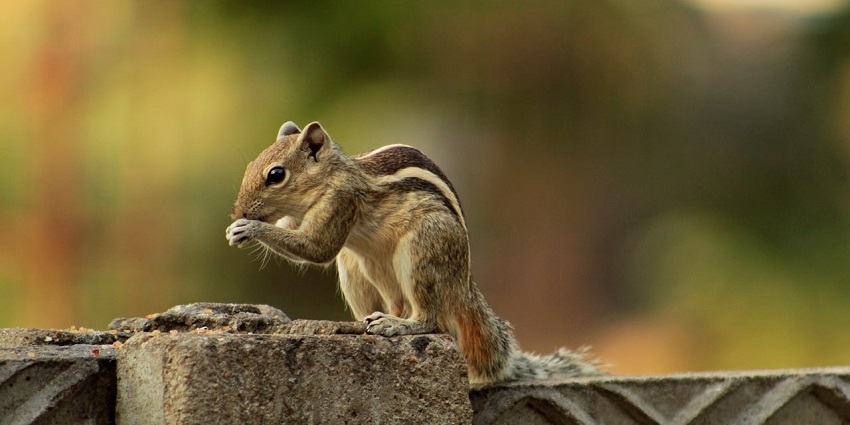
Photo: viswaprem / Pixabay / Image For Representation Only
In the Udaipur district of Rajasthan, India, Phulwari Ki Nal Wildlife Sanctuary is a treasure trove of diverse wildlife and breathtaking landscapes. Covering an area of more than 511 square kilometres, this sanctuary boasts a rich array of plant and animal life, featuring the majestic Indian leopard, sloth bear, and a multitude of bird species. With its forests and tranquil scenery, it serves as an ideal spot for nature lovers and wildlife photographers alike.
Suggested Read: Things To Do In Alwar To Experience The Rajasthani Culture
How To Reach
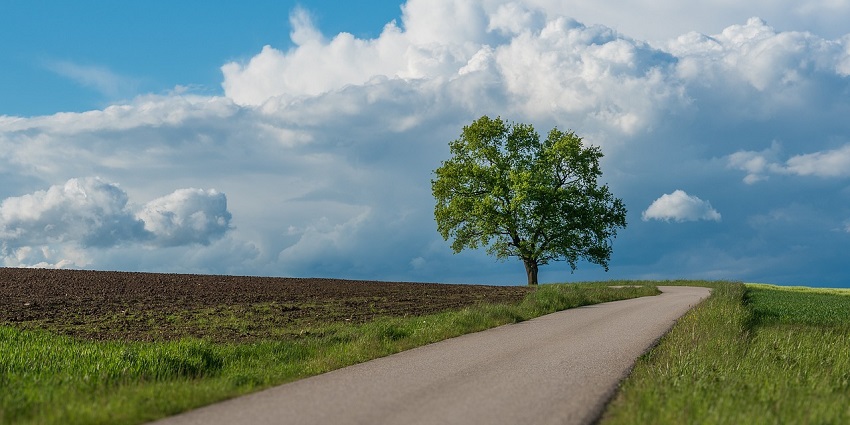
Photo: Franz26 / Pixabay / Image For Representation Only
Phulwari Ki Nal Sanctuary, in the Udaipur district of Rajasthan, India, is a paradise for those who adore nature and wildlife. If you’re wondering how to get to this sanctuary, here are the options for reaching it via road, train, and air travel.
By Road: The sanctuary is located around 80 kilometres from Udaipur. The journey usually involves taking NH27 towards Gogunda and then navigating through roads to reach the sanctuary.
By Train: The closest significant railway station is Udaipur City Railway Station. It has good connections to major cities throughout India.
By Air: If you prefer flying, the closest airport to Phulwari Ki Nal Sanctuary is Maharana Pratap Airport in Udaipur, which is approximately a kilometre away.
Places To Visit Near Phulwari Ki Nal Sanctuary
Nestled in the core of Rajasthan, Phulwari Ki Nal Sanctuary is encircled by a myriad of enchanting places that offer a fulfilling journey for those who appreciate nature and history.
1. Kumbhalgarh Fort
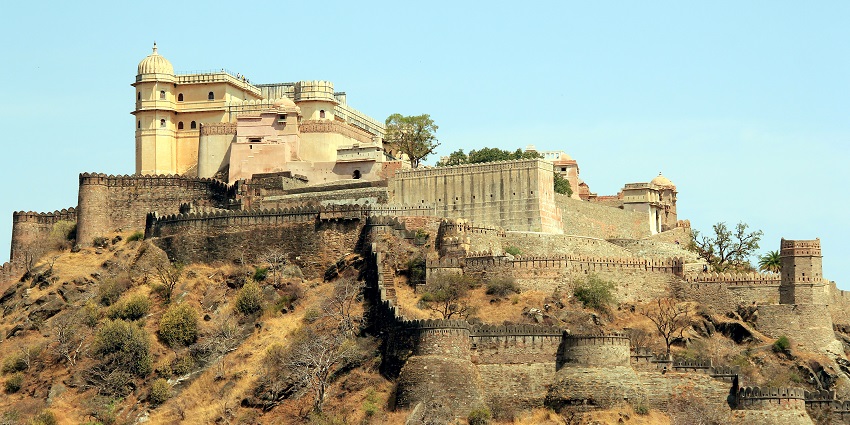
Photo: Rohanguj2 / Wikimedia Commons
Kumbhalgarh Fort, situated in the Aravalli Hills of Rajasthan, holds the designation of a UNESCO World Heritage Site. Its impressive walls spanning more than 36 kilometres are recognised as the second longest continuous wall globally. Constructed in the century by Rana Kumbha, the fort features seven fortified gateways along with a variety of temples, palaces, and gardens within its premises. The fort’s placement and sturdy design established it as an impenetrable fortress offering sanctuary to Mewar rulers during periods of unrest.
Entry Fee: ₹10 for local citizens and ₹100 for foreigners
Timings: 9 AM – 6 PM
Suggested Read: Theme Parks In Jaipur For A Rollercoaster Adventure
2. Ranakpur Jain Temple
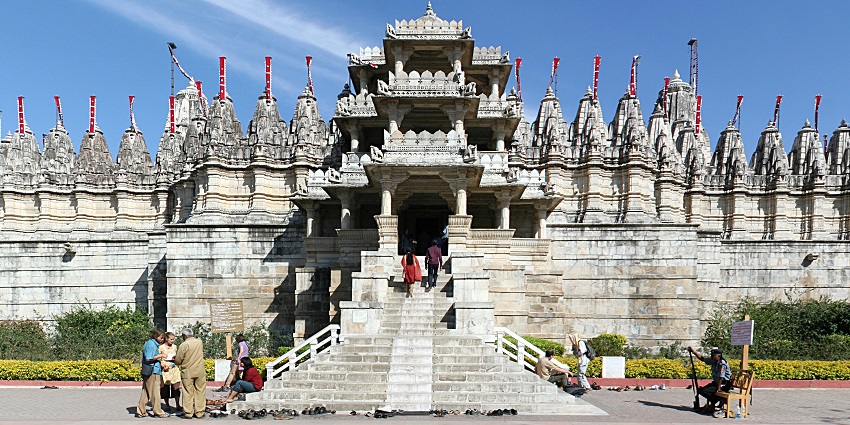
Photo: Ingo Mehling / Wikimedia Commons
Ranakpur Jain Temple, situated in Rajasthan, India, showcases an exquisite architectural style with its intricate marble work. Constructed in the century, it is devoted to Tirthankara Adinatha. The temple features 1,444 pillars, each adorned with unique carvings. Its design represents the universe and the everlasting essence of the soul. Within the temple grounds, there are shrines and domes embellished with intricate sculptures and patterns. Amidst the Aravalli Hills, Ranakpur serves as a peaceful pilgrimage destination reflecting deep spirituality.
Entry Fee: ₹100 for Indians and ₹200 for foreigners
Timings: 6 AM – 8:30 PM
3. Chittorgarh Fort
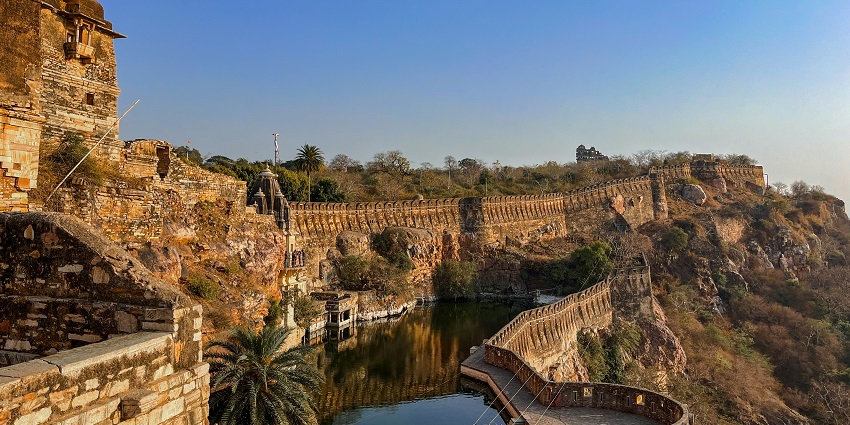
Chittorgarh Fort, in Rajasthan, India, is a UNESCO World Heritage Site and one of the largest forts in the country. Covering an area of 700 acres, it is perched on a hill that rises metres high. The fort boasts a history closely tied to the Rajput warrior Maharana Pratap and the legendary queen Padmini. Within its walls are palaces such as Rana Kumbha Palace and Padmini’s Palace, along with temples and towers like Vijay Stambh and Kirti Stambh. Chittorgarh Fort has withstood three sieges and stands as a testament to Rajput’s bravery, honour, and sacrifice.
Entry Fee: ₹50 for Indian citizens and ₹200 for foreigners
Timings: 9 AM – 5 PM
Suggested Read: Brij Vilas Palace Government Museum
4. Sajjangarh Palace
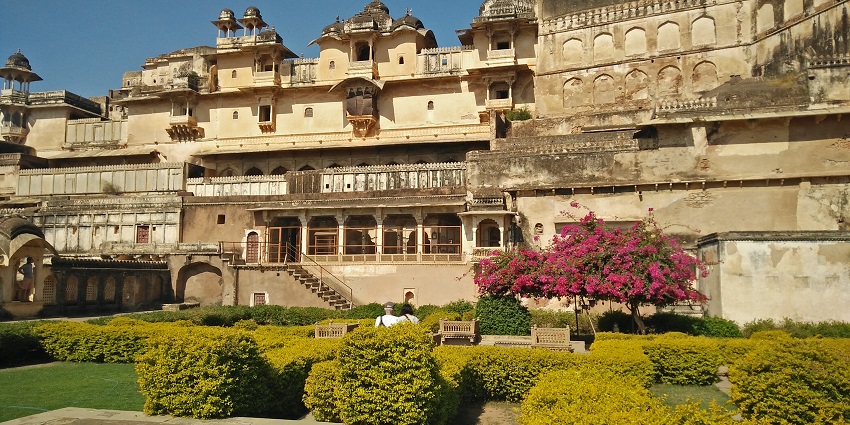
Photo: Alvin Antony 910 / Wikimedia Commons / Image For Representation Only
Sajjangarh Palace, on Bandera Mountain at an elevation of 944 metres, offers breathtaking views of Udaipur’s lakes, palaces, and the majestic Aravalli hills. Built-in 1884 by Maharana Sajjan Singh, this exquisite white marble palace was originally designed to serve as an observatory. Also known as the Monsoon Palace, it was used as a retreat and a lookout spot to witness the arrival of monsoon clouds. The palace’s detailed architecture featuring domes, fountains, and jharokhas showcases the opulence of Mewar’s royal heritage.
Entry Fee: ₹110 for Indians and ₹300 for foreigners
Timings: 9 AM – 5 PM
5. Shrinathji Temple

Photo: Nizil Shah / Wikimedia Commons / Image For Representation Only
Shrinathji Temple, in Nathdwara, Rajasthan, holds great significance as a Hindu pilgrimage destination honouring Lord Krishna. Within its walls rests a black marble idol of Shrinathji from the century portraying Krishna’s act of lifting the Govardhan Hill. The temple’s stunning design and lively celebrations draw in a multitude of worshippers every year. The daily rituals performed for the idol showcase the Pushtimarg traditions through intricate decorations and offerings.
Entry Fee: Free
Timings: 6 AM – 6 PM
Suggested Read: Bagore Ki Haveli Museum
Where To Stay

Photo: Engin Akyurt / Pexels / Image For Representation Only
If you are looking for a place to stay near Phulwari Ki Nal Sanctuary, the Udaipur region has options to offer. The Trident Hotel is a choice with its luxurious rooms and picturesque views of Lake Pichola. For a more budget-friendly stay, Hotel Panna Vilas provides cosy accommodations and a rooftop restaurant. If you seek a touch of heritage, the Jagat Niwas Palace Hotel, which is a restored 17th-century haveli, features Rajasthani decor alongside modern amenities.
Where To Eat

Photo: Chan Walrus / Pexels / Image For Representation Only
When it comes to dining options near Phulwari Ki Nal Sanctuary, Udaipur has a range of culinary delights to offer. Ambrai Restaurant, situated by the banks of Lake Pichola, not only provides a breathtaking view but also serves delectable Rajasthani and North Indian dishes. For a more laid-back dining experience, you can try Millets of Mewar, famous for its healthy organic meals and vegan choices. If you’re in the mood for a Rajasthani thali, Natraj Dining Hall is a must-visit spot serving a traditional and hearty feast.
Suggested Read: Sawai Madhopur Fort
Best Time To Visit
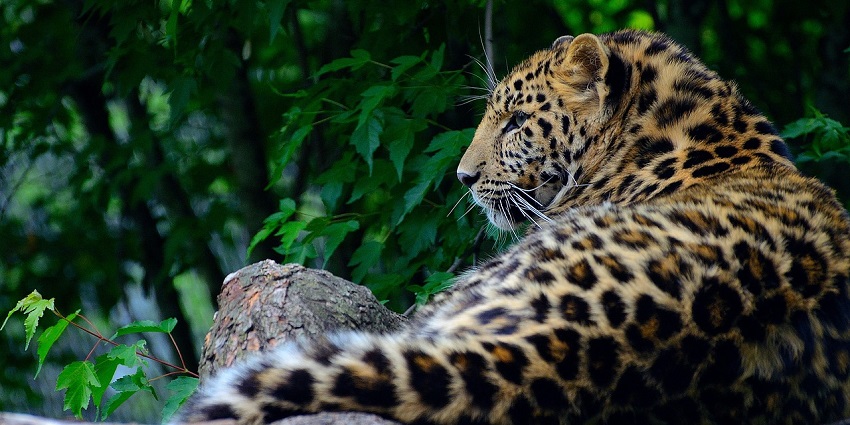
Photo: R_Francoeur / Pixabay / Image For Representation Only
The best time to visit Phulwari Ki Nal Wildlife Sanctuary is between October and March. During this period, the weather is pleasant, making it perfect for immersing yourself in the sanctuary’s diverse wildlife. The cooler temperatures add to the comfort of spotting animals and trekking through the lush surroundings. Moreover, after the monsoon season, the plants are vibrant and the water bodies are replenished, showcasing the natural beauty of the sanctuary.
Other Factors To Consider
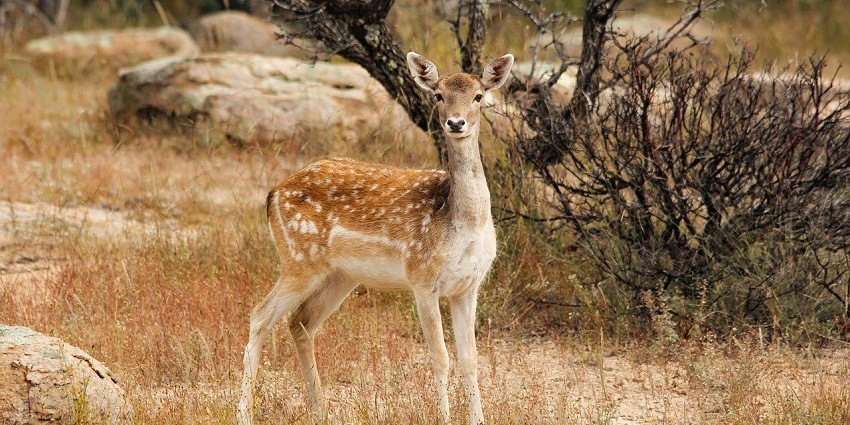
Photo: jpreimer / Pixabay / Image For Representation Only
Average Cost Of Trip
The average cost of visiting the sanctuary, on a budget, can range from around ₹7,000 to ₹10,000 per day. This covers accommodation ranging from ₹3,000 to ₹5,000, meals costing around ₹1,000 to ₹2,000, transportation expenses of about ₹2,000 to ₹3,000, and entry fees ranging from ₹200 to ₹500. Additional costs may include guided tours, souvenirs, and any special activities you choose to partake in.
Tips For Travellers
- Time Your Visit for the Weather The ideal time to visit Phulwari Ki Nal Sanctuary is from October to March, when the weather is enjoyable.
- Get a Guide for Insights To fully appreciate the sanctuary’s diverse wildlife, consider hiring a local guide. A knowledgeable guide can share information about the sanctuary’s history and importance.
- Dress comfortably for the terrain. The terrain in Phulwari Ki Nal can be rough and uneven. Wear shoes suitable for hiking and dress in layers to adjust to changing weather.
- Pack Your Essentials Make sure to bring a backpack with essentials like water, snacks, a first aid kit, and sunscreen.
Suggested Read: Guide To Sujangarh Fort
Phulwari Ki Nal Wildlife Sanctuary is a true treasure that provides a peaceful getaway in the embrace of nature. With its close proximity to Udaipur, one can explore various picturesque and historical attractions, which serves as a perfect spot for both nature enthusiasts and history buffs. Are you ready to explore this Sanctuary? Don’t wait! Plan your trip now with TripXL and get ready for a trip into nature!
Cover Photo: LapineBlanche / Pixabay / Image For Representation Only


 WhatsApp
WhatsApp
 Twitter
Twitter









